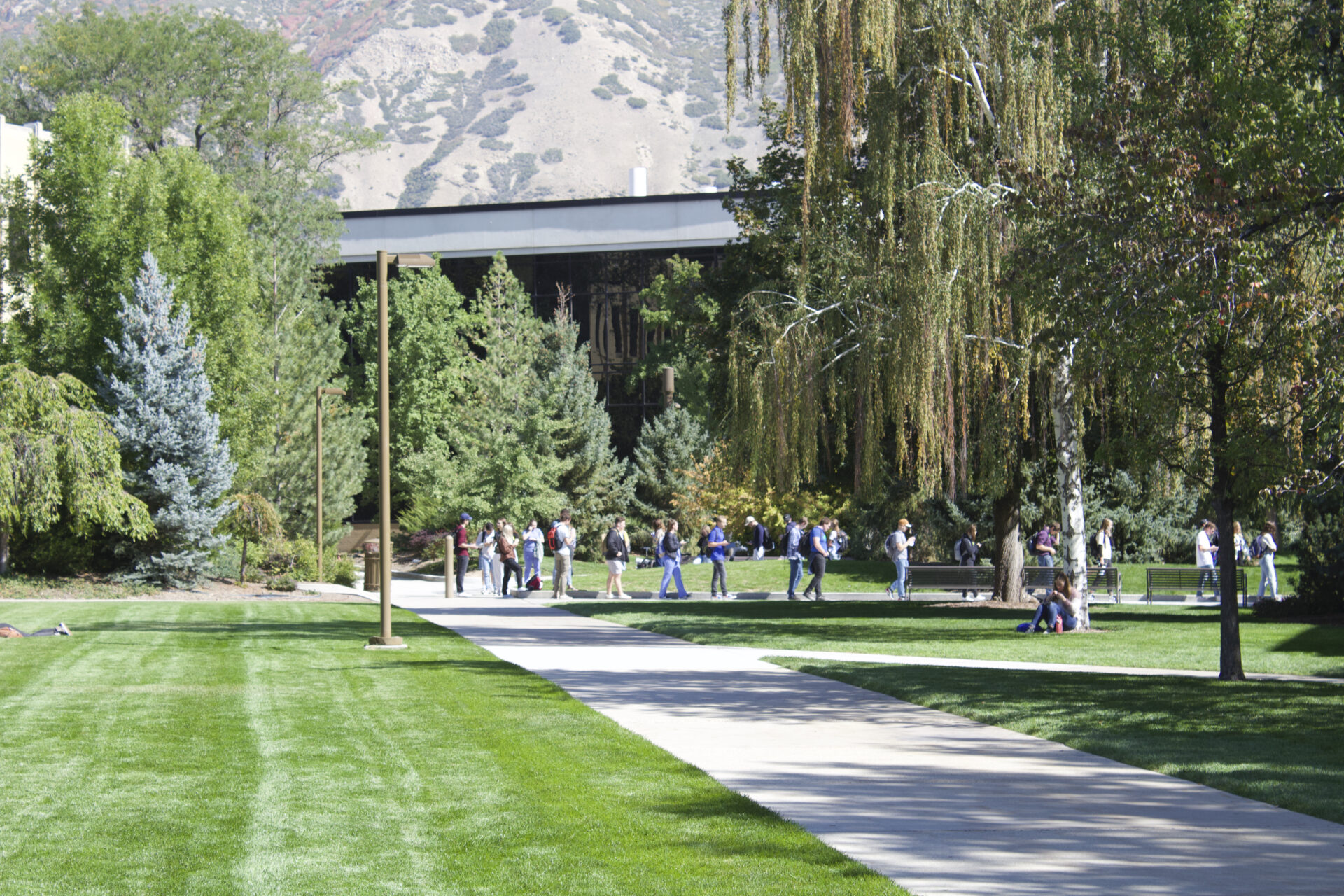
Since 1982, the Heber J. Grant building has long been the dreaded fear of many BYU students, but could the days of the University Testing Center be numbered, or is it here to stay?
When the pandemic shut down campus in March 2020, the Testing Center was shut down with it. For Fall 2020 semester and Winter 2021 semester, most tests were administered online through BYU Learning Suite or proctored applications such as Proctorio.
According to statistics provided by University Communications, there has been a slow decrease in the number of exams administered at the Testing Center by semester since 2016. In the Fall 2015 semester, 243,799 tests were administered. In the final semester before the pandemic shutdown, the Fall 2019 semester, 203,030 tests were administered.
These statistics show that each fall semester saw fewer and fewer tests in the Testing Center, with a 16.7% decrease in administered tests since 2015. The Winter 2019 semester experienced the lowest number since 2015, with only 194,254 tests administered.
With students back on campus, the numbers of tests administered for the current semester may be even lower if more professors continue to opt for online tests over physical ones. Students are split on whether they prefer online testing over in-person tests at the Testing Center.
Those in favor of online tests enjoy the more flexible schedule they provide. Kyle Christensen, a sophomore from Layton studying microbiology, said he enjoys the flexibility.
“I like not having to wait in a line. If I know I have this two-hour block to take a test, I can use that full two hours on the test instead of an hour in the line and an hour on the test,” Christensen said.

According to Madie Hodson, a sophomore from Meridian, Idaho, online tests relieve a lot of stress.
“There’s a lot less anxiety and buildup,” Hodson said. “I can go straight from studying and then switch gears and go into my test and have that information fresh on my mind. There’s no daunting test center to wipe my memory.”
However, not everyone prefers their tests online. Some students, like Kendra Earl, a senior from South Jordan, said they feel like they do better in the Testing Center.
“I feel like it just sets my mind aside. If I am taking it online, I feel like I do classes online, I study online, I do everything online, so it’s not like a set aside time or place to take a test. It kind of separates it like, oh, you’re not just studying, you’re taking a test,” she said.
As testing at universities continues to evolve, BYU plans to evolve with it, saidTodd Hollingshead, media relations manager for BYU. In addition to paper exams, the Testing Center also administers online proctored exams.
“As the largest university testing center in the country, and as part of BYU’s Center for Teaching & Learning, the Testing Center is connected with professional and academic testing organizations and the evolving dynamics of assessing student learning,” Hollingshead said.
“It is true that trends are moving more toward online testing, and we are taking steps to match those trends.”
Todd Hollingshead also said the main concerns are test security and preventing and catching cheating behaviors, and that testing centers and live proctors will continue to provide important services in maintaining test security and promoting academic honesty.




